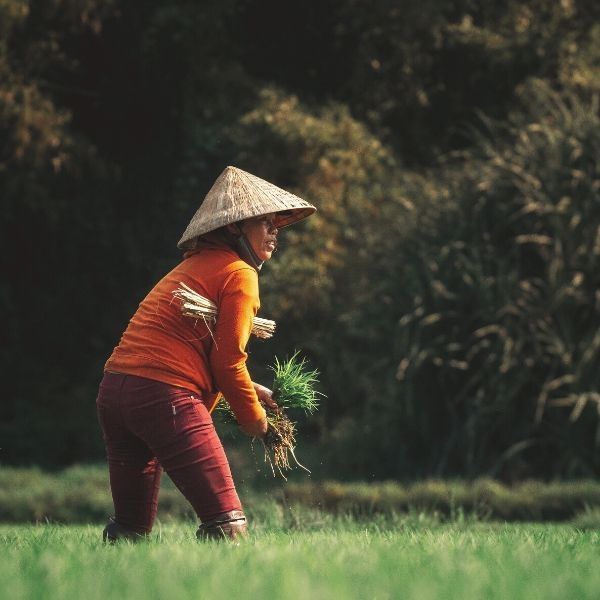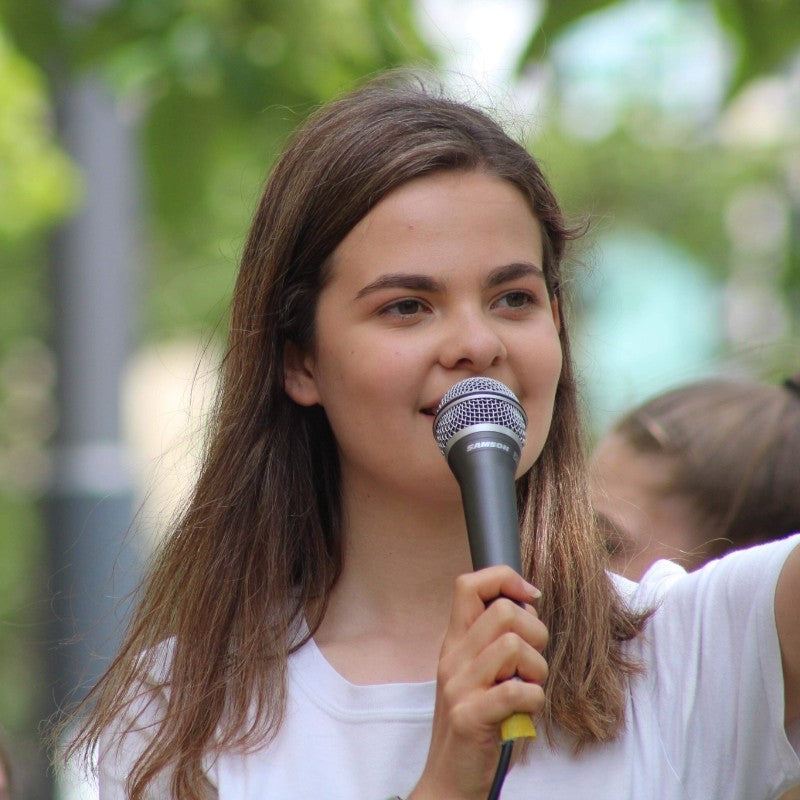The Experts At Being Young - Celebrating International Youth Day
Guest post by Melanie Fisher
Today is International Youth Day.
A day designated to drawing attention to the issues that face younger generations across the globe. This year, the theme is 'Intergenerational Solidarity'.
When it comes to achieving the 17 sustainable development goals as laid out by the UN, intergenerational solidarity is one of the most important x-factors. Only by leveraging strengths and encouraging cohesion across age groups can we expect to make real change happen - and last.

This point is made more obvious still, when you explore how the United Nations (UN) defines the term sustainable development. “Development that meets the needs of the present without compromising the ability of future generations to meet their own needs” (Brundt Commission, 1987).
Yet, when I look at the planet we are handing down, it is clear that compromises have been, and continue to be made.
The saying, often attributed to Native American leaders, “We have not inherited the land from our fathers, but have borrowed it from our children” has never felt more ominous or more true.
In my journey through the sustainability sphere, I’ve met young women afraid to start families, whose own Mothers in turn, shed tears over the Grandchildren they’ll never get to hold. I’ve also met twelve year olds excited about embracing entrepreneurship to solve the plastic crisis - who have brilliant ideas. I’ve met emerging teen leaders battling their way into politics and new startup founders taking matters into their own hands.

These young people give me hope, give me heart. The quality of their future matters to them and until the day we can hand it over, it should matter to us too.
One person in particular I take inspiration from is Emma Greenwood, who I have had the pleasure of getting to know since 2019.
Emma is an 18-year-old youth voice and climate activist with a specific focus on intergenerational collaboration to tackle the climate crisis. She was the acting Youth MP for Bury from 2019-22, as well as being a co-founder of the Manchester branch of the Youth Strikes 4 Climate. Emma is currently working to support Curv, a social network reimagined; built to support social change.
Her voice is one I will continue to listen to and amplify. So, I wanted to ask her opinion on the matter of intergenerational solidarity.
What is your current focus is with regards to politics, activism & climate change? (And your continued education?)
What does intergenerational solidarity mean to you, personally?
No one person, group or generation holds the key to tackling the climate crisis. The only way to truly tackle many of the crises and injustices we are faced with is through intergenerational work; where we come together to use the strengths we have gained through our own unique lived experiences. We have a wealth of skills, ideas and ambition globally which we can utilise by coming together as one. Intergenerational solidarity occurs in my everyday life, on an individual level, whenever I learn and act in collaboration with my parents & grandparents.
How do you think Intergenerational Solidarity could (and should) show up in a practical sense, through the lens of climate change?
We can already see intergenerational solidarity being practised both currently and historically. The spiritual belief that the earth is a gift that we are given to protect for future generations, means some cultures have acted with nothing but respect and preservation for the earth. This sense of responsibility that older generations (can and do) feel they have to future generations, creates arguably the strongest sense of solidarity we can see. Globally we can learn a lot here about the power and potential that different people throughout society have to act as one, to ensure the planet is protect for themselves and others.
How has your experience of Intergenerational Solidarity, manifested during your time as a youth MP? Or not, as the case may be?
My experience of intergenerational solidarity was certainly mixed, although I would like to say largely positive. Through the support of politicians such as Andy Burnham who truly valued and saw the contributions that youth voice could make to policy decisions, I was able to utilise platforms that had previously been very adult dominated. This is not to dismiss that there have been times when my voice as a young person and a youth activist has felt tokenised or used purely for publicity and diversity purposes. However, there are many adults out there in the activism and political spectrum who believe that by bringing young people and adults together there is great power, and choose to act on this in a valuable way. It is one thing for adults to see that young people’s voices hold power, and another for them to help empower and enable young people to utilise them.
What is your message to those who have paid only lip service to the younger generations?
You are doing yourself a disservice, there is only power to be found in effectively engaging with and listening to young people. One of the amazing youth workers I worked with, within Youth Focus North West told me - ‘young people are experts at being young people’. With 21.3% of the UK population being under 18, there is great power to be found in engaging with us and listening to our lived experience. Furthermore, contrary to possible stereotypes, there are many young people who are eager to learn from adults. So really it is a win-win when adults make a conscious effort to engage with young people in a constructive way.
What is your take on the mood within your peer group, as you enter the world as adults, able to vote and take more control of your future?
The mood is definitely mixed and increasingly influenced by social media or whatever global injustice leading media outlets have chosen to spotlight. Yes, there is an increasing awareness around global issues and the consequential desire for action, however, after the pandemic and with the ongoing cost of living crisis many young people (and arguably adults alike) feel powerless. We are faced with a zombie parliament in a gridlock and a rapid news cycle where nothing good ever really seems to happen. Without drastic action to tackle a lot of the doom-ism present, I feel many young people will feel they are powerless to control their future and take action.
What is your message to younger generations and anyone who wishes to do their part to amplify your work?
Don't let anyone tell you that your voice doesn't hold power.
There will be people out there quick to dismiss your voice as inexperienced and invaluable but you are an expert at being a young person. The ambition you have and the innovative ideas you hold can and will change the world. So, never be afraid to go out there and use them. Whilst social action communities can be intimidating, there are so many people there who want to help empower and enable you to be the change you want to see in the world; so don't be afraid to attend some meetings and see how you can use your voice in solidarity with others.

Conclusion
What strikes me as most important about Emma’s message is that is not (nor will it ever be) an ‘us vs them’ battle. It isn’t even all about ‘them’, or one generation over another. Intergenerational solidarity is about all of us and how we can come together in a cohesive and aligned global community, to improve the lives of people at any age, in any location.
In practice, it can be as easy as passing on a lesson, or asking an opinion. As easy as inviting someone to speak and stopping to listen.
It can be as easy as remembering, and sharing our own lived experience.
Because, weren’t we all once experts at being young?













Leave a comment (all fields required)